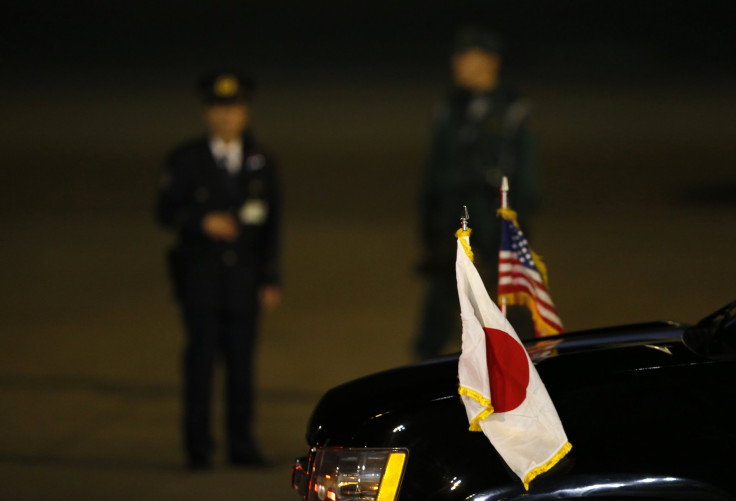US Continues To Criticize China’s Air Defense Zone While Biden Calls For Confidence-Building

The U.S. refused to back down from its criticism of China’s newly established Air Defense Identification Zone, or ADIZ, at a time when Vice President Joe Biden, who is on a trip to East Asia, has been tasked with diffusing tensions between the U.S., its regional allies and China.
Biden, in a written interview with Japan’s Asahi Shimbun prior to his visit to Tokyo, called on Japan and China to establish ways to tackle territorial tensions and to build trust, but added that the U.S. remains “deeply concerned” about the ADIZ. Meanwhile, the U.S. Navy deployed two sophisticated P-8A Poseidon surveillance planes at the Kadena air base in Japan’s Okinawa prefecture, in a move that was scheduled before China set up the air defense zone on Nov. 23, Agence France-Presse reported.
Biden, who arrived in Tokyo on Monday, said in the interview that the ADIZ “underscores the need for agreement between China and Japan to establish crisis management and confidence building measures to lower tensions.”
However, the State Department said on Monday that China’s ADIZ “has caused confusion and increased the risk of accidents,” highlighting “the need for China to rescind the procedures” linked to the new ADIZ.
“It’s consistently been our position and one we have communicated both publicly and privately,” State Department spokesperson Jen Psaki said, during a daily press briefing in Washington D.C., without specifying whether the department called on China to scrap the ADIZ altogether or only the rules linked to it.
The State Department’s statement reflected concerns about the possibility of unintended clashes between military or civilian planes in the contested region, and worries that the occurrence of such incidents could escalate into regional conflict.
Although the State Department has asked commercial U.S. carriers to notify Chinese authorities before entering the ADIZ, as mandated by Beijing, the Japanese government has asked its carriers not to comply with China’s ADIZ rules, in a move that raised concerns about untoward consequences including collisions.
Biden, on a six-day trip that includes visits to Beijing and Seoul, will also aim to strike an agreement with Japan over the Trans Pacific Partnership pact -- one of the most ambitious free trade agreements in history.
The vice president called for “mutual concessions” among all 12 members involved in the negotiations, saying that it “can be a gold standard for a new model of high-quality trade agreements,” Asahi Shimbun reported.
“What I can tell you is that our negotiators are working around the clock, full speed ahead,” Biden said, even as President Barack Obama’s administration pushes to reach an agreement before the end of December. “All countries--including mine--are grappling with sensitive issues…If we get it right, the Trans-Pacific Partnership can be a force for growth and opportunity in countries representing 40 percent of the world economy.”
© Copyright IBTimes 2024. All rights reserved.






















